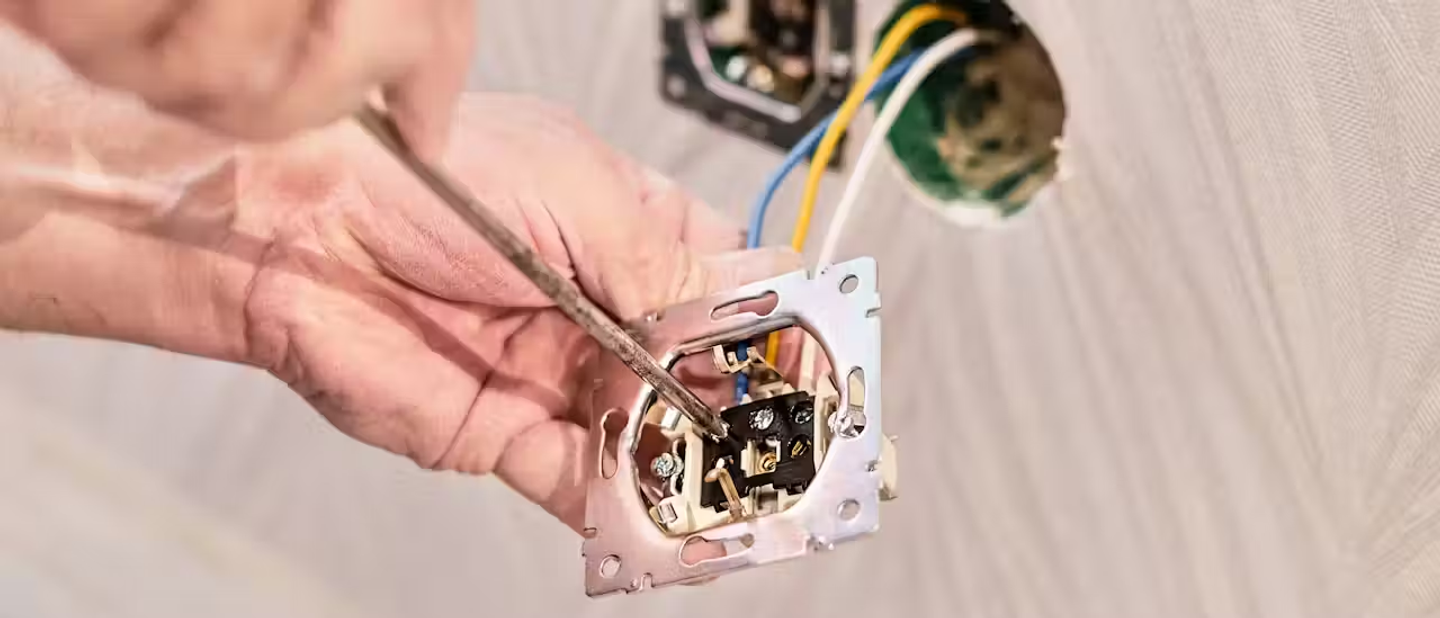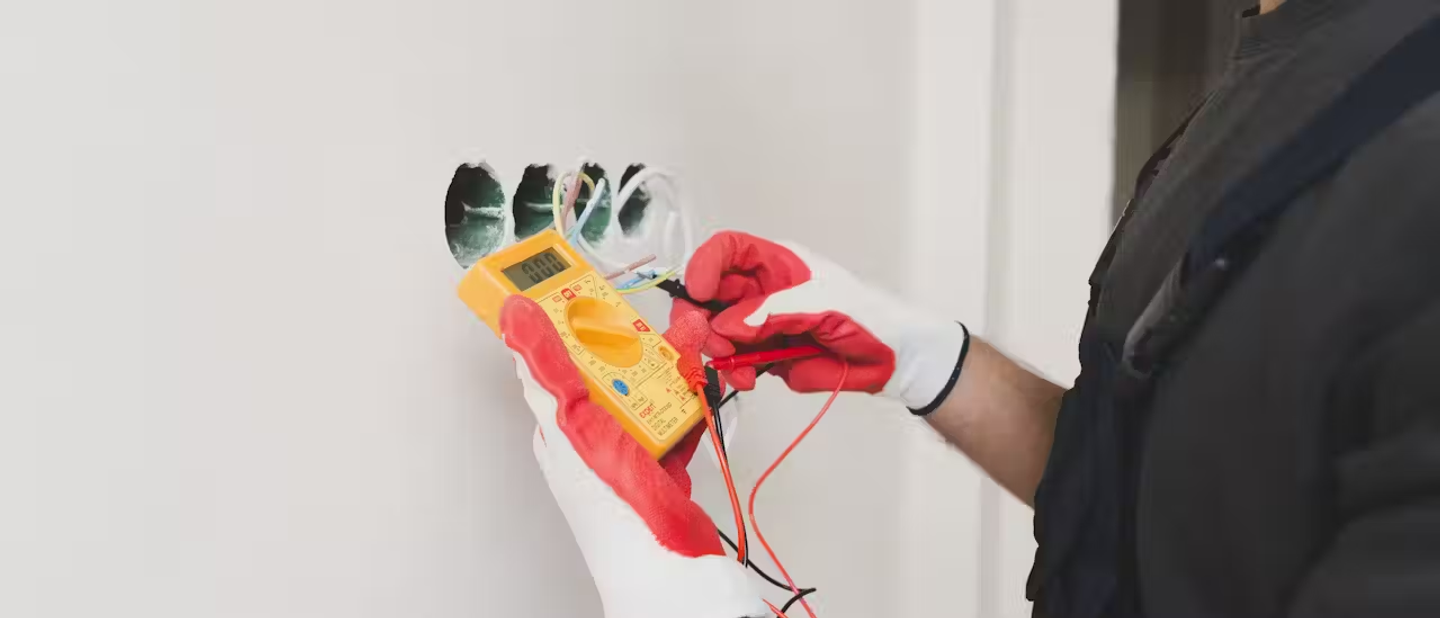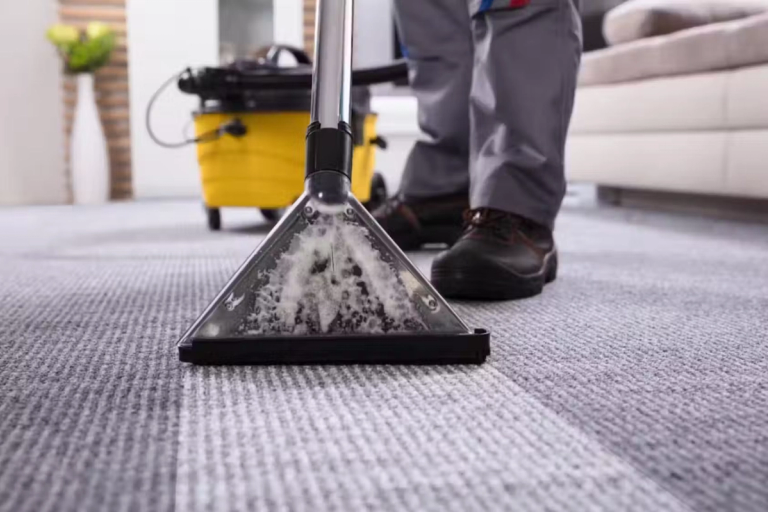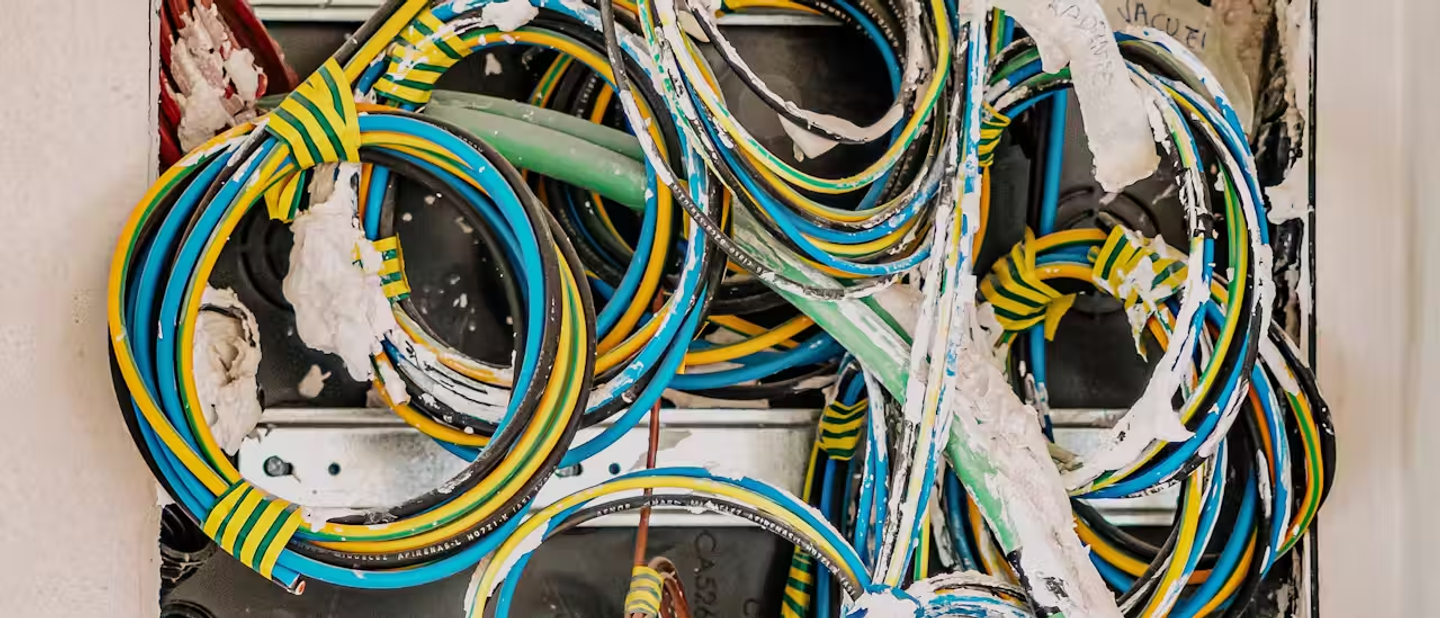For those of us who are interested in the electrical trade, we at HSS ProService have put together some tips and tricks about electrical basics. Whether you’re a professional electrician who is starting out in their career or a DIY enthusiast who would like to learn more about electrical work, we will have enough information for you to get through the fundamentals.
The Importance of Electrical Basics
Understanding the basics about electrical work is crucial for everyone working in the trade and especially if you’re doing some DIY with minimal knowledge. Not only will this knowledge keep you and other safe but you’ll also be able to correctly repair things around your home or whilst on the job so you don’t make the situation worse.

Common Electrical Terms and Concepts
If you’re new to the electrical industry, there might be some terms and concepts that you haven’t heard of or maybe you have but you don’t know what they mean. We have broken down some of the more popular terms that we think you might come across during your work.
Circuits – A circuit is the path that electricity flows through. In order for things to work, you’ll need a complete circuit and within that, you’ll need a source of electricity. If the circuit is open or if it’s broken, your tools, appliance & other electrical items will stop working.
Current - This is simply the flow of electricity that goes around the electric circuit. The larger the current, more energy flows through the current. Currents are measured in amperes (A).
Resistance - This is electrical quantity that measures how a tool or appliance reduces the electric current flow that goes through it.
Voltage - The “pressure” from a circuit’s power source that’s pushes electricity. Voltage is shown as (V) & the higher the voltage the more electricity to flows to your electronic device.
Wiring Basics and Circuitry
When it’s time to get wiring, it’s important you understand the basics for electrical work. If you’re still not sure about what to do with your wiring jobs or don’t feel too confident, make sure you get in touch with a professional electrician.
When wiring, you’ll be dealing with different coloured wires –
Brown – live
Blue – neutral
Green/yellow – earth
All wiring must be in accordance with BS7671 wiring regulations.
A device’s electrical current flows along the live wire & uses the neutral wire to flow back up. If the current leaks from a circuit because of a fault, the earth wire can provide an escape route for it.
There are 3 main circuits – ring main, radical circuit & hard-wired appliance circuit – and circuit breakers which are the main switch, MCB & RCD which link to your fuse box. In your house, your fuse box is an important system. Usually mounted near your energy meter, a fuse box is designed to help your appliances work as well as protect them when there is a fault.
Ring main circuit – Connecting typically to sockets, the ring main circuit’s electrical current can flow from either end of the ring. The current carrying capacity can increase with you having to increase the wiring size. This circuit is used to wire power sockets.
Radical circuit – This circuit feeds a single cable from the consumer unit to your electrical devices and then stops at the last point of the circuit. It doesn’t return to the consumer unit. The radical circuit’s current rating limits how far the circuit can supply energy. This type of circuit is used to wire household items like boilers and cookers as well as sockets & lighting points.
Hard-wired appliances circuit – A dedicated circuit straight from the consumer unit, this circuit has higher gauge wiring and is protected by high rating circuit breakers. Used to wire cookers, showers, dryers, air con units & other integrated appliances, the connection units are typically double pole which means it uses live and neutral wires at the same time.
The main switch circuit breaker is able to isolate incoming electrical power supply in your home. The incoming power supply is split into several circuits – power, light & appliance. Controlled and protected by a mini circuit breaker (MCB), when the circuits current goes above the MCB’s current, the MCB trips (turns off) the power to protect appliances & devices on that circuit.
An RCD – Residual Current Device – is a sensitive safety device that switches off electricity when a fault is detected. Any outdoor devices that are powered by circuits must be installed with RCD protection. RCD’s prevent fires and electrical shocks caused by earth wire faults.
Safety Precautions in Electrical Work
Keeping yourself safe when dealing with electrical work is imperative to stop accidents which can sometimes be fatal. As previously mentioned, all wiring needs to be in accordance with the BS7671 wiring regulations.
You must NEVER touch any wires or electrical equipment with wet hands as you will get an extreme shock.
If someone does experience an electrical shock, turn off the source of electricity if you can. If you can’t turn off the source of electricity, use a nonconducting object that is made from wood, rubber or plastic and use that to move the electricity source away from the person who has been shocked. Check that the person is breathing or moving. Call the emergency services and begin CPR if the person is not breathing.
A process you must do to keep you safe in your home is earthing. This is required in every home to protect you from getting an electric sock when there is a fault with something electrical. A protective conductor provides a path for a faulty current to flow to the earth wire and will trigger the circuit breaker to cut off the power. If a circuit doesn’t have earthing & a fault occurs, the metal body of your appliance or tool becomes live and can give you a fatal electric shock.
Bonding is another important process that can stop you from getting a life-threatening electric shock. Bonding conductors reduce the risk of being touched after touching 2 separate metal parts if there is a fault in the circuit.
All electrical connections such as power sockets, switches & plugs must be tight and not loose to reduce the risk of exposed live wires.

Tools and Equipment for Basic Electrical Work
Every DIY or professional mechanic are going to need basic electrical tools to get their jobs done & at HSS, we have just what you need.
Wire Strippers
These are used to remove insulation from cables, and some can also be used to cut through copper or conduit in a wire.
Insulated Screwdrivers
As an electrician, you might need to frequently access electrical containers that are secured with screws. Having insulated screwdrivers prevent you from getting electric shock if there’s a fault and the equipment is live.
A versatile tool, ideally used for gripping, wire cutting & insulation stripping.
Electrical Tape
Used to insulate wires and other objects that conduct electricity, these different coloured tapes help electricians create their own colour code to differentiate between wires they are working with.
Voltage Tester
These devices can help you determine whether there is a live current in a particular location. Used for checking cables, switches, electrical boxes and similar, if a light is shown on the device, it indicates there is a live current, so you’ll know to shut down the current before you begin working.
DIY Electrical Projects for Beginners
There are plenty of DIY electrical projects that are fit for beginners. Minor repairs and replacements will be a great start for people doing their own electrical projects. Jobs such as installing & moving sockets & light switches, installing a fire alarm, LED dimmers, video doorbell & other smaller jobs are the perfect jobs to start with for basic home wiring.
No matter if you’re starting out in your electrician career, have had many years in the trade or want to take on your own electrical work, having a basic understanding of what to do and how to stay safe is really important and could potentially save your life.
At HSS, we have a wide selection of high-quality electrical equipment from well-known brands such as Bahco, Expert, Faithfull, Stanley, Teng & more.
If you need any support with finding the right tools to help you with your electrical jobs, whether professional or DIY work, get in touch with our live chat experts who are on hand and happy to help or contact your local HSS store.






















































